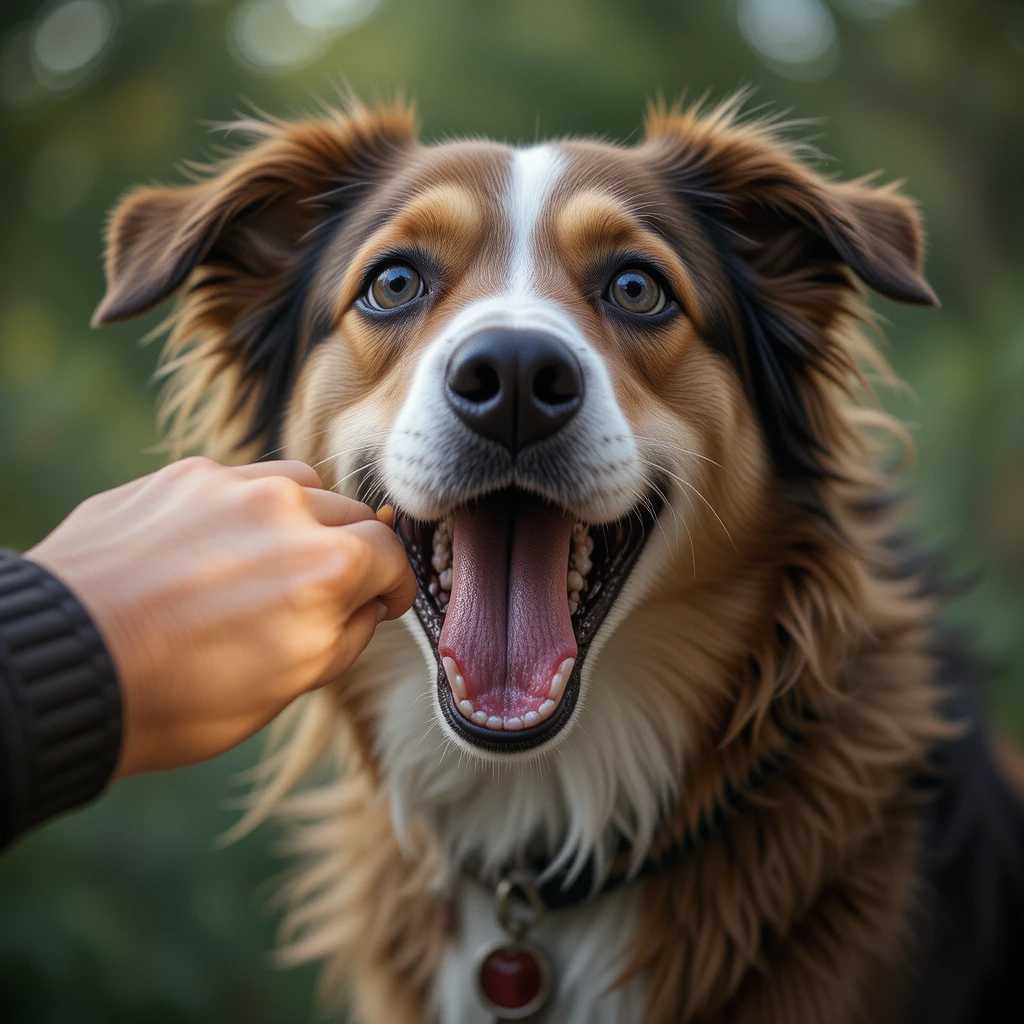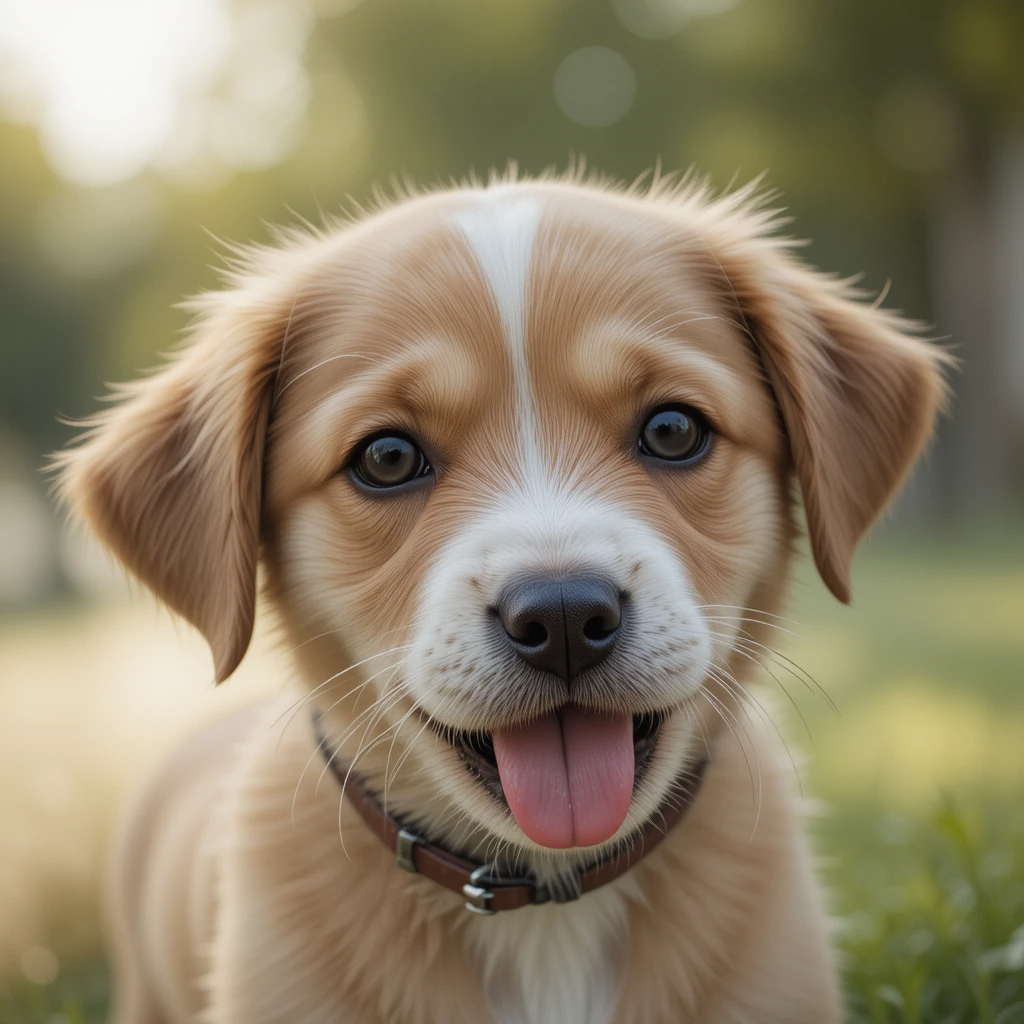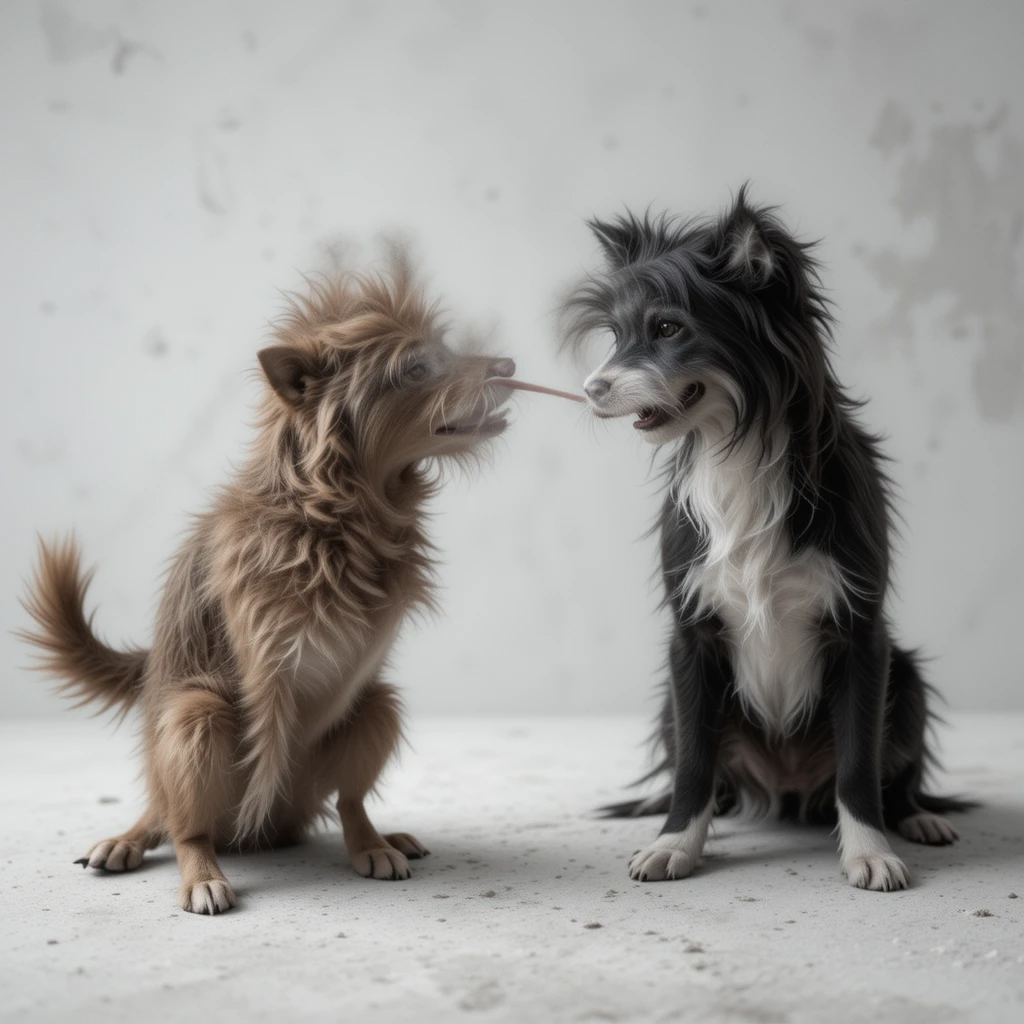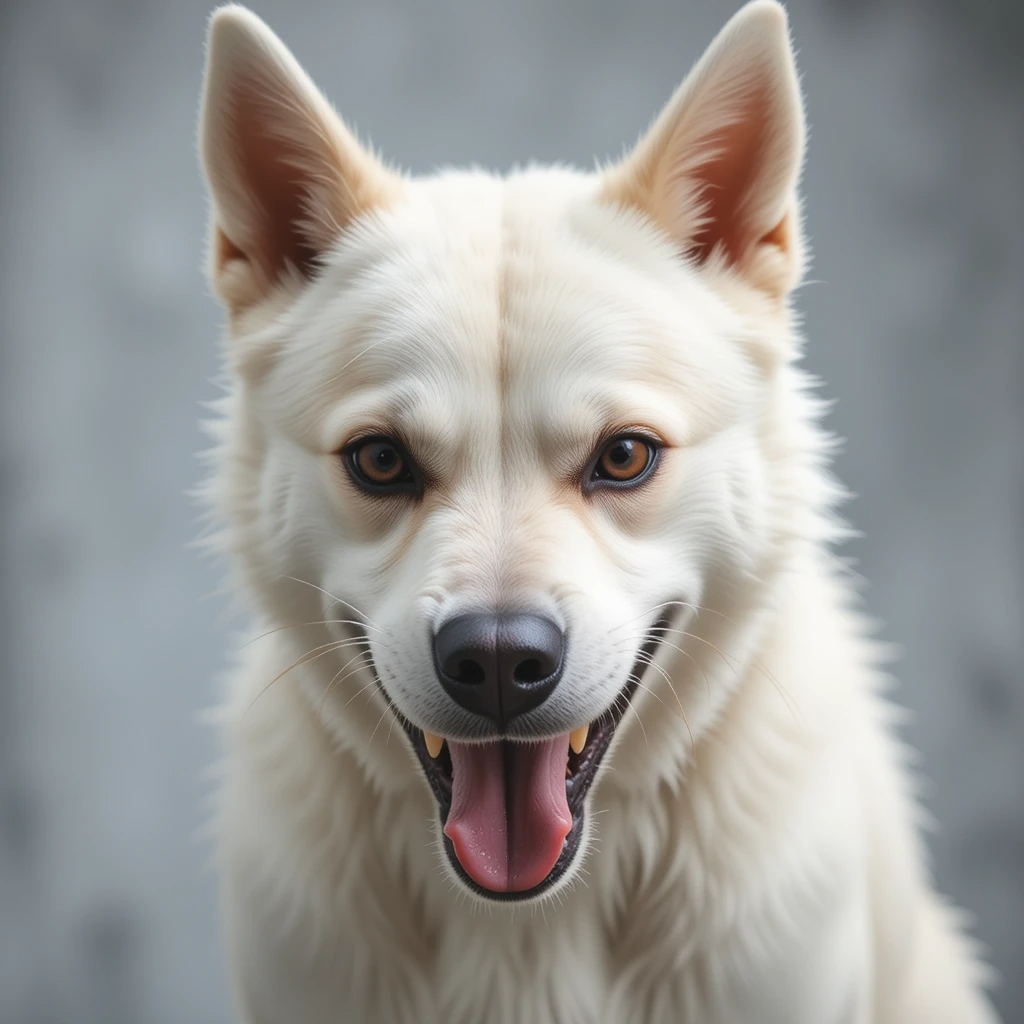How to Stop Dogs from Eating Poop? If your dog is eating poop, don’t feel like you’re alone. Many dog owners face this issue and it’s not something that should lead to rehome or even euthanize your pet. There are plenty of affordable products and techniques available to discourage this behavior. For example, behavior modification is an excellent way to train your dog to avoid eating poop.
You can use simple commands or rewards when your dog refrains from eating something it shouldn’t. Additionally, there are products available that can make poop less palatable to your dog, helping to curb the behavior. As a dog owner, the key is to remain patient and consistent in your efforts. Dogs can learn and change with time, and with the right approach, you can stop the poop-eating habit effectively.
Table of Contents
Why Do Dogs Eat Poop?
The habit of dogs eating poop, known scientifically as coprophagia, is more common than we think. While it might be shocking to us, it’s not that unusual for a dog to view poop as a delicacy. There are several behavioral and physiological reasons behind this. According to a study led by Dr. Benjamin Hart at the University of California, Davis, around 16% of dogs are classified as “serious” **poop eaters,” meaning they have been caught eating poop five times or more.
The study suggests that this behavior could be linked to an innate instinct of ancestral canids, whose eating habits helped protect them from intestinal parasites. It’s in a dog’s DNA to sometimes eat poop, reflecting their evolution as scavengers who ate whatever they found.

As animal behaviorist Steven R. Lindsay points out, coprophagia might be a survival behavior evolved to help dogs cope with starvation. In times when food was hard to find, dogs weren’t picky about what they ate. The study, which included surveys sent to around 3,000 dog owners, also highlights that while eating poop might seem repulsive to us, it isn’t the same for dogs. Their idea of what’s good to eat is far different from ours, given their natural scavenger instincts.
How to Stop It
Many dog owners are surprised to learn that eating poop is a normal, natural behavior for dogs, especially at certain life stages. For example, mother dogs will clean up after their puppies by eating their poop for the first few weeks after birth. This behavior is common and helps the puppies learn how to eliminate properly. Additionally, puppies may engage in autocoprophagia, eating their own poop, or allocoprophagia, eating poop from other dogs, cats, or even other animals. It’s also not unusual for dogs to be attracted to things like horse manure or goose droppings, finding them particularly appealing.
While it may seem strange, this behavior is not dangerous for puppies when they eat their own poop. However, eating poop from other animals could lead to health problems if the stool contains parasites, viruses, or toxins. Thankfully, this behavior typically fades as the puppy grows, and by around nine months old, it will likely disappear. So, while it might be alarming to see your puppy engage in poop-eating, it’s generally part of their natural development.
Dogs Eating Poop
If your adult dog starts eating poop, it could be a sign of something more serious. It’s important to consult with your vet to rule out any potential health problems, such as parasites, drugs like steroids, or conditions like diabetes, Cushing’s Disease, or thyroid disease. Sometimes, it’s not just health issues – diets that are deficient in nutrients or calories might cause this behavior too. On the other hand, there could also be environmental stress or behavioral triggers that make your dog start eating its own poop. It’s important to keep a close eye on these signs to ensure your dog is healthy and comfortable.
Dogs often don’t exhibit these behaviors without a reason. Whether it’s due to a medical condition or a lack of proper nutrition, these triggers can play a significant role in the behavior. If this continues, it’s best to make sure the diet is balanced and discuss possible treatment options with your vet to ensure your dog’s well-being.
Isolation
Dogs that are kept alone in places like kennels or basements may be more likely to eat poop compared to dogs who live close to their owners. Studies have shown that when dogs are isolated from their people, they may develop habits like this as a result of stress or boredom. The lack of interaction or stimulation could lead them to engage in behaviors they might not show when they are with their family. Isolation can cause anxiety in dogs, making them seek ways to cope, such as eating poop.
It’s important for dog owners to ensure that their pets are not left isolated for long periods of time. Social interaction and spending time with their humans can help reduce this kind of behavior. Keeping your dog close by and avoiding long periods of isolation can be crucial in preventing unwanted habits like poop eating.
Confinement to Small Spaces
When dogs are confined to small spaces for extended periods, they can develop behaviors like poop-eating. It’s not uncommon to see this in dogs that have been rescued from crowded animal shelters where they may have spent a lot of time in limited space. The stress and lack of room to move around can lead to unwanted habits like coprophagia. These behaviors are often a result of frustration or anxiety from being in an uncomfortable or cramped environment.
If your dog is spending too much time in a small area, it’s important to give them space to play and move freely. Providing enough room and engaging in regular activities can help reduce anxiety and discourage habits like eating poop. A dog’s mental and physical well-being can be improved by ensuring they are not isolated in tight spaces for long periods.
Anxiety and Poop Eating
Sometimes, coprophagia in dogs happens because of anxiety related to punishment or harsh methods used during house training. According to this theory, a dog might eliminate and then eat their own poop to hide the evidence of what they’ve done. Unfortunately, when this happens, the dog is often punished even more, which creates a vicious cycle. The fear of being punished can make the dog more anxious, leading them to repeat this behavior.
If you find yourself using harsh methods with your dog, it’s important to reassess your training approach. Positive reinforcement and patience will reduce anxiety in your dog, which can help eliminate unwanted behaviors like poop-eating. Being kind and gentle during training can break the cycle and lead to better, healthier habits for your dog.
Attention-Seeking Behavior in Dogs
Sometimes, dogs will eat their own poop as a way of getting attention from their humans. This can happen because they know that eating poop will cause a reaction, and dogs are often very good at seeking attention in whatever way they can. If your dog is engaging in this behavior, it’s important to avoid overreacting, as this may reinforce the behavior. Instead, stay calm and redirect their attention to something else to help break the cycle.
By responding calmly and not giving your dog the attention they expect, you can help them understand that eating poop won’t get them the reaction they want. This can be a key step in stopping this behavior and promoting more positive interactions with your dog.

Inappropriate Association with Real Food
Sometimes, dogs can make an inappropriate association between real food and poop if they are fed too close to where they eliminate. This can lead to them connecting the odors of food and feces, and they may struggle to tell the difference between the two. It’s important to make sure that feeding and watering areas are kept separate from elimination or potty areas to avoid this confusion. If dogs are allowed to eat near their poop, they might begin to think that the smell of both is acceptable, leading to undesirable habits like eating poop.
By simply keeping feeding and elimination areas separate, you can help prevent your dog from making this association, which will reduce the chances of them eating their own or other animals’ poop.
Smelling Poop on Their Mothers
In some cases, puppies can get confused by sniffing the fecal odors on their mother’s breath after she has cleaned them. This can happen because the smell of poop may be on the mother’s mouth, which could lead the puppies to associate the odor with something normal. Additionally, mothers may regurgitate food that has been mixed with puppy fecal matter. This behavior is known as an “appetitive inoculation,” and it might cause the puppy to develop the habit of eating poop later on.
It’s a natural instinct for mothers to clean their puppies, but in some cases, this behavior might unintentionally encourage puppies to eat poop. By understanding this connection, you can take steps to prevent the development of this unwanted habit.
Living With a Sick or Elderly Dog
When you have a healthy dog living with a weaker dog, especially one who is sick or elderly, it’s not unusual for the healthy dog to consume poop from the other dog, particularly in cases of fecal incontinence. Scientists hypothesize that this could be an instinctive behavior, where the dog is trying to protect the pack from potential predators. It’s believed that by cleaning up waste, the dog may be preventing any sign of vulnerability that could attract danger.
This behavior can be unsettling, but it’s important to understand that it might stem from deep-rooted instincts to protect their environment. If you have a sick or elderly dog, you may need to monitor their waste and try to keep them clean to avoid this behavior. Understanding the connection between fecal incontinence and instinct can help you manage this challenge with compassion.
How to Stop Your Dog from Eating Poop
If your dog is eating poop, it’s important to first understand the cause of this behavior. Some dogs eat poop due to a medical condition, and these dogs will need different methods to stop the behavior than those who do it due to stress or other behavioral responses. In cases where there is a medical cause, it’s best to consult with your veterinarian to rule out any health issues. If the problem is related to stress, you may need to work with a behavioral expert to address the root of the issue and teach your dog better ways to cope with anxiety or fear.
To successfully stop your dog from eating poop, it’s crucial to use the right strategies. Veterinarians and dog owners have seen positive changes by identifying the cause and adjusting their approach accordingly. If your dog continues to eat poop, it’s essential to work with professionals who can help, whether that’s a vet or a behavioral expert who can offer targeted solutions for your dog’s specific situation.
Vitamin Supplements for Dogs Eating Poop
There’s a common theory that some dogs eat poop because they may be missing important nutrients in their diets. One possible solution is giving them a dog multivitamin, which could help address any potential deficiencies. Vitamin-B deficiency, especially, has been identified as a likely cause, with studies backing this up. In fact, in 1981, scientists discovered that fecal microbial activity helps synthesize thiamine, a B-vitamin. Other research has also pointed to other missing nutrients that could be contributing to this behavior.
If your dog is eating poop, it may be worth considering whether they are lacking key vitamins or nutrients. Adding a multivitamin to their diet might help, especially if they are deficient in Vitamin-B. This could address the root cause of their behavior and reduce the likelihood of them eating poop in the future.
Enzyme Supplements for Dogs Eating Poop
The modern canine diet tends to be higher in carbohydrates and lower in meat-based proteins and fats compared to what dogs would have eaten in the wild. This shift in diet can sometimes lead to digestive issues or nutritional imbalances. To help with this, some dog owners have had success using digestive enzyme supplements to support their dogs’ digestion. One common enzyme that is found in these supplements is papain, which aids in digestion and helps break down food more efficiently.
If your dog is eating poop, it might be worth considering whether their digestive system is getting the nutrients it needs. Adding an enzyme supplement containing papain or similar enzymes can help improve their digestion and potentially reduce the urge to eat poop.
aste-Aversion Products for Dogs Eating Poop
One method that can help stop your dog from eating poop is using taste-aversion products. The idea behind this is that certain tastes and smells are as disgusting to dogs as the idea of stool eating is to us. You can offer a poop-eating deterrent treat or add a deterrent powder to their food, which will make the poop they produce less appealing. Many of these products contain ingredients like monosodium glutamate, chamomile, pepper-plant derivatives, yucca, garlic, and parsley.
For these products to work, it’s important that all the dogs (and even cats) in the household eat a stool-eating deterrent, so the poop becomes unpalatable to the dog who’s been eating it. Some owners also use a bitter-tasting spray on the poop itself to make it even less tempting. These strategies can help break the cycle of poop-eating by making the stool taste worse to the dog.
Managing the Environment for Dogs That Eat Poop
To stop your dog from eating poop, managing their environment is essential. One of the most effective methods is through proper training and setting up the right equipment for feeding, training, and walking your dog. Keeping your dog’s living area and yard clean is a key factor in this, ensuring there are no piles of poop for your dog to be tempted by. Always supervise your dog during walks and pick up their poop immediately to avoid any chance of them eating it.
In addition to maintaining a clean environment, work on training cues like “leave it” and “come”. One simple but effective exercise is to teach your dog to come to you for a treat right after they’ve pooped. This helps create a habit where your dog looks to you for a tasty tidbit instead of being drawn to the revolting poop on the ground. If you have a cat, make sure to keep the litter box clean or out of the dog’s reach. You can also use a dog gate to restrict access to the litter box or choose a self-cleaning option to make it easier to keep both pets’ areas clean.

Facts About Dogs Who Eat Poop
When puppies eat poop, it’s often part of their natural behavior as they explore the world around them. They may be more interested in sniffing and investigating the scents of poop, but some puppies will put just about anything into their mouths, including poop! Interestingly, dogs tend to avoid eating soft, poorly formed feces or diarrhea, and are more attracted to hard stools. In fact, frozen poop seems to be an especially exciting treat for dogs who engage in this behavior.
There are some surprising facts about dogs who eat poop. For example, coprophagia is more common in multi-dog households, where 33 percent of dogs will eat poop, compared to only 20 percent in single-dog homes. Female dogs are more likely to eat poop, while intact males are the least likely.
92 percent of dogs who eat poop prefer it to be fresh, typically only one to two days old. 85 percent of dogs will not eat their own feces, but prefer poop from other dogs. Greedy eaters, dogs who tend to steal food off tables, are also more likely to eat poop. If you catch your dog eating poop, it’s a good idea to consult your veterinarian to determine the cause and find an appropriate solution.

